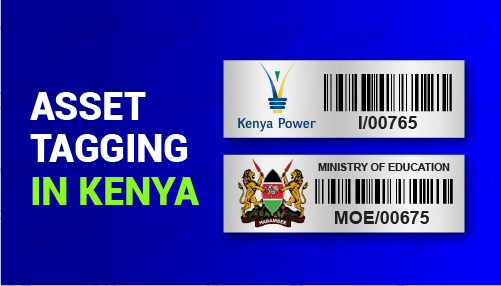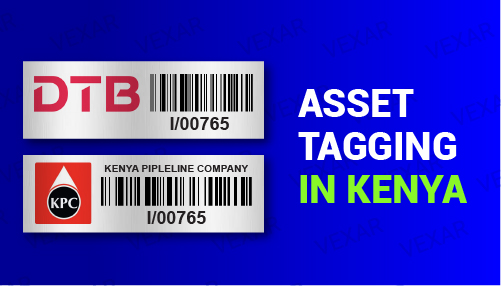Asset Tagging Services in Kenya: Streamlining Asset Management with Aluminium Barcode Asset Tags
Asset Tagging Services in Kenya: Streamlining Asset Management with Aluminium Barcode Asset Tags.
Asset tracking is an essential aspect of efficient asset management for businesses in Kenya. To ensure accuracy and improve productivity, organizations are turning to asset tagging services. Asset tagging involves labeling assets with unique codes for easy identification and tracking. In this Article, we will explore how asset tagging services in Kenya can benefit businesses and enhance their asset management practices.
1. Enhanced Asset Visibility With Asset Tagging:
Asset tagging services provide businesses in Kenya with a systematic and organized way to track and locate assets. Each asset is assigned a unique tag or barcode, making it easy to identify and track its location at any given time. Improved asset visibility reduces the risk of misplaced or lost assets, ultimately saving businesses both time and money.
2. Efficient Inventory Management With Asset Tagging:
Asset tagging services streamline the process of managing inventory. By tagging assets, businesses can easily conduct regular inventory audits and update their records with accurate information. This ensures that assets are accounted for, reducing the chances of overstocking or understocking. Efficient inventory management leads to cost savings and improved inventory turnover.
3. Preventing Theft and Loss With Asset Tagging:
Asset tagging plays a crucial role in deterring theft and preventing loss. Visible asset tags act as a deterrent to potential thieves, reducing the risk of assets being stolen. In the event of loss or theft, asset tags help with identification and recovery efforts. Additionally, asset tagging services can integrate with security systems, enabling businesses to track assets in real-time and receive alerts in case of unauthorized movement.
4. Streamlined Maintenance and Repair With Asset Tagging:
Asset tagging services simplify maintenance and repair processes. Each asset can be assigned a maintenance schedule, making it easier to track and schedule routine maintenance. By having access to accurate asset information, businesses can ensure timely maintenance, reducing downtime and extending the lifespan of their assets.
5. Regulatory Compliance With Asset Tagging:
Many industries in Kenya have strict regulations regarding asset management and accountability. Asset tagging services help businesses maintain compliance by providing a reliable method of tracking and documenting assets. With accurate records and data, businesses are better prepared for audits and regulatory inspections, avoiding potential penalties and fines.
6. Optimal Resource Utilization With Asset Tagging:
Asset tagging services provide businesses with valuable insights into asset utilization and productivity. By analyzing data from tagged assets, businesses can identify underutilized or redundant assets, optimizing resource allocation. This results in better decision-making, improved efficiency, and reduced costs.
7. Asset Tagging Integration with Asset Management Software:
Asset tagging services often integrate with asset management software or systems. This integration allows for seamless data transfer and consolidation, further enhancing asset management processes. With real-time access to asset information, businesses can make informed decisions, track depreciation, and plan for future asset investments.
8. Increased Accountability and Transparency With Asset Tagging:
Asset tagging brings increased accountability and transparency to asset management practices. Each tagged asset is tied to an individual or department, making asset ownership clear and promoting responsible usage. This accountability leads to improved asset care, reduced loss or damage, and greater transparency in resource allocation.
In conclusion, asset tagging services in Kenya offer numerous benefits for businesses seeking to enhance their asset management practices. Improved asset visibility, efficient inventory management, theft prevention, streamlined maintenance, regulatory compliance, optimal resource utilization, integration with asset management software, and increased accountability are key advantages. By implementing asset tagging services, businesses in Kenya can optimize their operations and focus on growth while maintaining control over their valuable assets.




